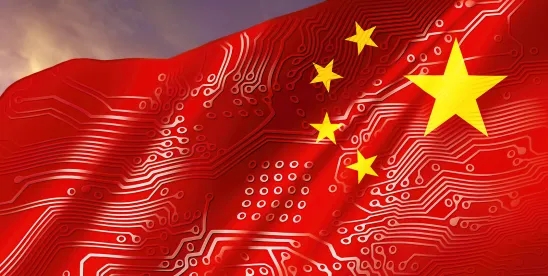On August 8, 2025, China’s Supreme People’s Court (SPC) released the Guiding Opinions on Implementing the Law of the People’s Republic of China on Promoting the Private Economy (关于贯彻落实〈中华人民共和国民营经济促进法〉的指导意见). Per the SPC, “the Guiding Opinions propose specific measures in five sections to judicially safeguard the development and growth of the private economy. These measures aim to address the challenges faced by the private economy and provide stronger legal safeguards for its healthy growth.” As explained by the SPC, key measures includes:
- strengthening confidence through equal protection under the law;
- providing guidance on standardized operations to lay a solid foundation;
- stabilizing expectations through strict and fair judicial practice; and
- stimulating vitality through good faith and civilized judicial practice.
IP-related provisions follow. As the SPC website remains geoblocked, the full text is available here (Chinese only) via social media.
3. Regulate monopoly and unfair competition in accordance with the law. Strengthen judicial efforts against monopoly and unfair competition, and regulate, in accordance with the law, acts that undermine fair competition and disrupt market order. Hear cases involving monopoly disputes in the science and technology sector in accordance with the law, accurately determine the boundary between the normal exercise of intellectual property rights and the abuse of intellectual property rights to exclude or restrict competition, ensure fair access to innovation resources for all types of enterprises, achieve the rational allocation and efficient utilization of innovation resources, and actively promote the construction of a unified large market.
6. Strengthen judicial protection of scientific and technological innovation. We must strengthen intellectual property protection for innovative achievements while curbing malicious and sham intellectual property litigation, thereby optimizing the legal environment for innovation and entrepreneurship. We must legally adjudicate intellectual property cases involving high-tech sectors, and enhance judicial protection for scientific and technological innovation achievements in key areas and core technologies. We must research and formulate guidance on the application of punitive damages, improve adjudication rules, and refine identification standards, effectively leveraging the institutional value of punitive damages for intellectual property rights in punishing infringements, providing effective remedies, and encouraging innovation and creativity. We must actively address the “one case waiting for another” problem and the lack of uniform adjudication standards in cases involving the intersection of patents, civil cases, and administrative cases, striving to achieve procedural coordination and outcomes in the adjudication of cases involving both civil and administrative cases. We will work with the National Intellectual Property Administration to establish and improve a coordinated case adjudication mechanism, expedite administrative procedures for patent confirmation related to patent civil cases, and promote substantive dispute resolution. We will strengthen coordination in the adjudication of batch intellectual property rights protection cases, and standardize adjudication standards for batch protection cases nationwide through the publication of typical cases and guiding norms.



 />i
/>i
